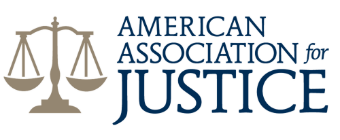Federal law prohibits debt collectors from harassing or deceiving you. Nor can they contact you at inconvenient times. If you're being harassed by a debt collector, we may be able to help. The Fair Debt Collection Practices Act allows consumers to fight back by filing private lawsuits.
- Secure financial damages and stop the harassment!
- Hold unscrupulous debt collectors liable for their misconduct.
- Contact us now to learn more.
Fill out our online questionnaire to see if you qualify to pursue compensation. Our experienced attorneys can answer all of your questions and help you through the process.
Our team has the experience, understanding and tenacity that our clients deserve. That's how we get results.
"Highly Recommended." If you have a problem, you need the Justice Guardians!
Harassed by constant debt collection calls? You're not alone. Around 1 in 3 Americans currently has a debt in collections. And most of those people are getting calls from debt collection agencies, to say nothing of their primary creditors.
Fighting Back Against Unfair Debt Collection Tactics
In many cases, debt collection calls aren't just annoying; they can lead to real psychological harm. There's nothing illegal about dodging a debt collector; you have every right to ignore their calls and delete their voice messages, the Federal Trade Commission says. Of course, debt collectors also have the right to track you down and hound you until you pay them. Or they can take you to court.

But you can fight back. Under the Federal Debt Collection Practices Act, debt collectors are obligated to treat you fairly, without resorting to abusive or dishonest collection tactics. Collection agencies who violate the law can be held accountable in civil court. The FDCPA grants you the power to pursue financial damages when your rights under the law have been violated.
Who's Covered By The FDCPA?
The Federal Debt Collection Practices Act applies to anyone who regularly collects, or attempts to collect, debts that are owed to someone else. That definition includes debt collection agencies and debt buyers, who purchase delinquent debts in order to collect on them, as well as debt collection law firms.


In general, the FDCPA doesn't control the activities of a primary creditor, like your utility company or credit card provider. The law's protections are also limited to personal, family and household debts; business debts aren't covered.
When Can Debt Collectors Call?
Debt collectors aren't allowed to contact you at "inconvenient" times. "Inconvenient" is a flexible term. It's assumed that calls placed before 8 a.m. and after 9 p.m. (your local time) are inconvenient. In general, debt collection agencies aren't allowed to contact you early in the morning or late at night. But if you work overnights, sleeping during the day, then a call placed at noon could be considered "inconvenient" in your case.
"Inconvenient" isn't just a legal term that means the same thing for everyone; it's about what is convenient to you. You can also waive this right. Debt collectors can call you at "inconvenient" times, if you give them permission to.
Identity Disclosure Requirements
Every time you get contacted by a debt collector, they have to disclose who they are. The collector has to tell you that he or she is a debt collector who is attempted to collect on a debt. That's true when a collector is calling you on the phone, sending you a letter, firing off a quick email or sending a text. Debt collectors must disclose their identity, in a "clear and meaningful" manner.
Likewise, debt collection agencies, attorneys and buyers are prohibited from misrepresenting themselves. It probably goes without saying, but it's illegal for a collector to pretend to be someone else. Despite the law, this is still a common collection tactic. Unscrupulous debt collectors try to pass themselves off as government officials, police officers and attorneys every day.
Validation Of Debt Notices
After you get a debt collection call, wait by the mail. Collectors are required to send you a "validation notice" within five days of their first call, explaining how much money they think you owe. Validation notices have to provide the name of the creditor and clear guidelines on disputing the debt if you don't actually owe it.
How To Dispute A Debt
Once you've received a validation notice, you have a few legal options. Within the next 30 days, you can send the collector a written letter, disputing some or all of the owed amount and asking the agency to verify the debt. Send that letter and the collection agency has to stop contacting you, until they send you verification of the debt (like a copy of an unpaid bill) in writing.
It's almost always a good idea to dispute the debt. At the least, you'll force the collector to prove that you owe a specific amount of money. And why would you pay someone who can't prove that you owe them money? In any case, if the collector can verify your debt, the collection calls or texts can start up again.
Another option is to hire an attorney to represent you in the matter. Once you've hired a lawyer, the collector is required to contact your legal counsel with all correspondence, rather than you personally.
How To Stop Collection Calls
Want the calls to stop? It's surprisingly easy (or at least, it would be surprisingly easy, if every debt collector followed the law). Send the collection agency a written letter, asking them to stop contacting you. After making a copy of the letter for your own records, send it by certified mail and request a return receipt, so you can prove later that you sent the letter and it got to the collector. After they've received your letter, debt collectors are only allowed to contact you for two reasons:
- to tell you that they will no longer contact you
- to tell you that they intend to take further legal action, like filing a lawsuit
Sending that letter may or may not be a good idea. Obviously, you've given the debt collector little choice but to pursue you through other legal avenues. If you actually owe the money, your interests might be better-served by trying to work with the debt collector to figure out a mutually-acceptable way of paying down your debt.
How Can Collection Agencies Find Me?
Debt collectors are allowed to obtain limited information from other people. They can contact anyone - friends, family members, neighbors or your employer - to confirm your identity. That's it. Collectors can contact other people to confirm your name, your address, your home phone number and your place of employment. Any other conversation is likely to be illegal.
Debt collectors aren't allowed to discuss your debt with other people and, in most cases, collectors are only allowed to contact your friends or neighbors one time, unless those people give them permission to maintain communication. For any information beyond the confirmation of your identity and contact details, debt collectors are restricted to talking to you, your spouse or your attorney.
Of course, in reality, things are different. Debt collectors frequently ask other people to give debtors a "message," usually to intimidate you into paying. That's illegal, as are "block parties," when collection agencies call a bunch of your neighbors and tell them to give you an "urgent message," all in an attempt to embarrass you into paying up. "Block parties" violate the Federal Debt Collection Practices Act.
Can Debt Collectors Call You At Work?
Debt collection agencies are allowed to contact you at work unless they know (or should know) that you aren't allowed to receive those kinds of calls at your place of employment. Want them to stop calling you at work? Just tell them to stop. Once you've informed the collector (either verbally or in writing) that you aren't allowed to receive personal calls at work, they are legally obligated to stop. If they continue to call your work, they're violating the FDCPA.
Can You Sue For Harassment?
Think a collection agency, debt buyer or attorney has violated your rights under the Federal Debt Collection Practices Act? You can sue them. The FDCPA imposes "strict liability" on debt collectors, which means that, in court, all you'll have to prove is that the collector violated the law. You don't have to show that they did it intentionally or maliciously. You may also have a legal case under the Telephone Consumer Protection Act.
And what you can win could be substantial. Prove a violation of the FDCPA and the court can award you financial compensation for your actual damages, including lost wages, medical expenses and psychological trauma. Moreover, the court can also order the debt collector to pay you up to $1,000 (that's $1,000 per lawsuit, not per legal violation), along with attorneys' fees and court costs.